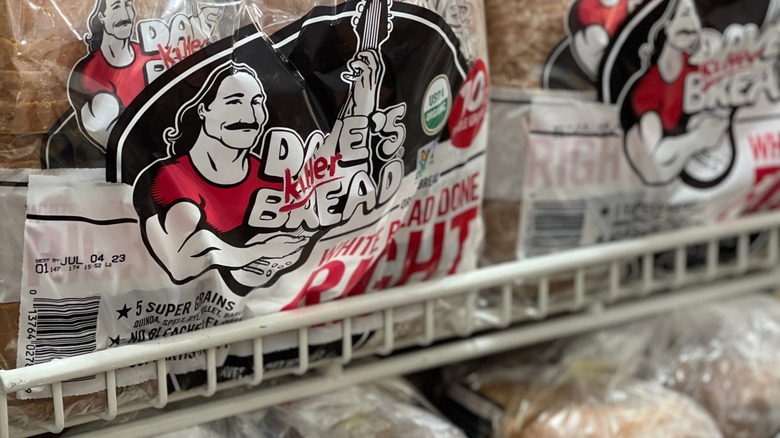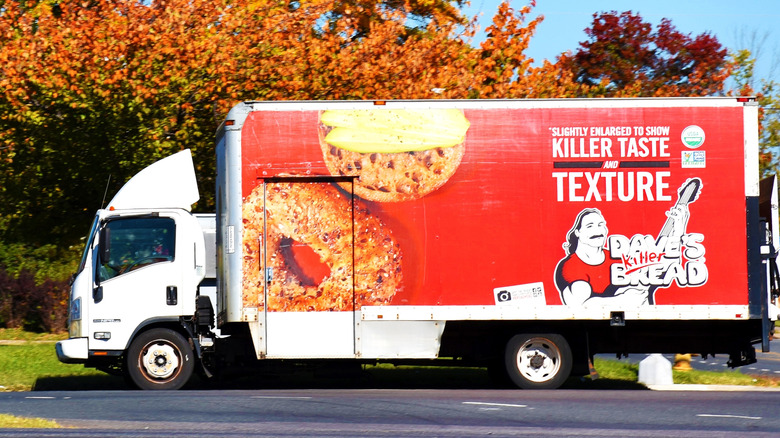Why Dave's Killer Bread Is 'Dave's' In Name Only
You've probably seen him before, or at least a caricature of him on the packages of Dave's Killer Bread. He's got long flowing hair, a mustache, and is playing a guitar. But like Colonel Sanders, the face of the fast food chicken chain KFC, Dave Dahl, the man behind the beloved organic whole-grain bread, is merely a mascot. Dahl went from a career criminal to a multimillionaire baker with his Dave's Killer Bread when he sold his family's company in 2015 for $275 million.
The company that bought it, Flowers Foods, negotiated for the rights to Dahl's life story. And while he stayed an investor in the company, that, and his image, are his only ties to it. Dahl's story of how he turned his life around through baking after spending more than 15 years behind bars was key to the success of Dave's Killer Bread. But even before the sale, Dahl's day-to-day involvement with the company became sidelined due to alcohol overuse and mental health issues.
The founding and changing hands of Dave's Killer Bread
Dave Dahl's family were trailblazers in the healthy bread market, making organic sprouted wheat bread in Portland, Oregon, back in the 1960s, before there were even USDA organic standards for food made without synthetic products. But Dahl's path strayed towards drugs and crime. "I went to prison four times, I was a knucklehead drug addict," he told NBC News in 2010. "I was an armed robber, a drug dealer, a burglar. I did whatever." During his fourth prison stint, he finally asked for help, began taking antidepressants, and went to work with his older brother, Glenn, in the family business after his release.
Dave began experimenting with different bread recipes and came up with Blues Bread, which he rolled in seeds and blue corn meal. From there, other varieties followed, and the brand boomed. Wanting to give back, the company hired many formerly incarcerated people (a practice that continues under the new owners). In 2012, the Dahls sold half the company to a private equity firm. The new board put Dave on a leave while he dealt with addiction and mental health issues, eventually leading to him leaving the company entirely upon its sale.
Today, Dave has moved on to selling and collecting African tribal art, continues to donate to worthy causes, and is living on a 33-acre farm with his wife, Michelle, outside Portland. Like canned food namesake Chef Boyardee (yes, he was a real person), Dave Dahl's likeness continues to grace the product that he no longer makes.

